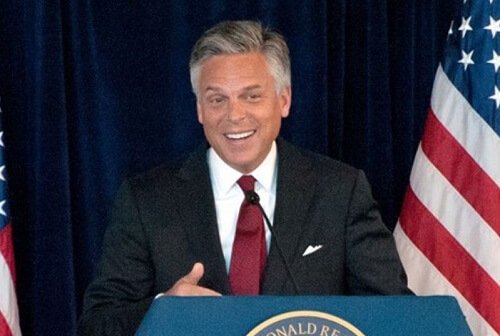Imran Khan Biography and Life Story
In this article, here is the full details of Imran Khan about wiki, biography, date of birth, birthplace, zodiac sign, nationality, hometown, age, height, weight, father, mother, family, girlfriend, wife, relationship status, children, profession, education, career, net worth, facts, Wikipedia, and many more.

Imran Khan, born Imran Ahmed Khan Niazi on October 5, 1952, in Lahore, Pakistan, is a globally recognized figure known for his multifaceted career as an international cricket legend, a philanthropist, and a prominent political leader. He is the founder of Pakistan’s political party, Pakistan Tehreek-e-Insaf (PTI), and served as the 22nd Prime Minister of Pakistan from August 2018 to April 2022. Imran Khan’s life story is one of transformation, marked by his evolution from a sports icon to a national leader.
Early Life and Education
Imran Khan was born into a well-off Pashtun family with a strong educational background. His father, Ikramullah Khan Niazi, was a civil engineer, and his mother, Shaukat Khanum, came from a family with a history of public service. Imran was educated at prestigious institutions, starting with Aitchison College in Lahore, where he excelled academically and athletically.
He later attended the Royal Grammar School in Worcester, England, and then went on to study at Keble College, Oxford, where he graduated with a degree in Philosophy, Politics, and Economics (PPE) in 1975. It was during his time at Oxford that he began to develop his cricketing skills, which would later catapult him to international fame.
Cricket Career
Imran Khan made his debut for the Pakistan national cricket team in 1971 at the age of 18. Over the next two decades, he established himself as one of the greatest all-rounders in the history of cricket. Renowned for his fast bowling, sharp cricketing intellect, and leadership qualities, Imran became the captain of the Pakistan cricket team in 1982.
As captain, he led Pakistan to numerous victories, but his crowning achievement came in 1992 when he guided Pakistan to its first-ever Cricket World Cup victory. The 1992 World Cup win was a defining moment in Pakistan’s cricket history and solidified Imran Khan’s status as a national hero.
Philanthropy
After retiring from cricket in 1992, Imran Khan turned his attention to philanthropy. Inspired by his mother’s battle with cancer, he established the Shaukat Khanum Memorial Cancer Hospital & Research Centre in Lahore in 1994. The hospital was the first of its kind in Pakistan, providing free cancer treatment to the underprivileged. Funded largely through donations and Imran’s tireless fundraising efforts, the hospital became a symbol of hope for many Pakistanis.
Imran’s philanthropic efforts extended beyond healthcare. He also founded Namal University in Mianwali, his hometown, with the aim of providing quality education to students from rural areas. His commitment to social causes earned him widespread admiration and respect, both in Pakistan and internationally.
Political Career
Imran Khan’s entry into politics came in 1996 when he founded the political party Pakistan Tehreek-e-Insaf (PTI) with a vision of creating a corruption-free and just society in Pakistan. However, his early years in politics were challenging. PTI struggled to gain traction in the political landscape dominated by established parties, and Imran himself faced criticism and skepticism from political analysts.
Despite the setbacks, Imran remained committed to his cause, gradually building a grassroots support base. PTI’s breakthrough came in the 2013 general elections when the party emerged as a significant force, winning the second-highest number of seats in the National Assembly. Imran Khan’s message of justice, accountability, and anti-corruption resonated with a large segment of the Pakistani population, particularly the youth.
In the 2018 general elections, PTI secured a decisive victory, and Imran Khan was sworn in as the Prime Minister of Pakistan on August 18, 2018. His tenure as Prime Minister was marked by efforts to tackle corruption, improve governance, and implement welfare programs for the poor. He also played a significant role in foreign relations, particularly in improving ties with neighboring countries and addressing regional security issues.
Challenges and Achievements as Prime Minister
As Prime Minister, Imran Khan faced numerous challenges, including economic difficulties, political opposition, and social issues. His government launched several initiatives aimed at poverty alleviation, healthcare, and education, including the Ehsaas Program and the Sehat Sahulat Program to provide health insurance to low-income families.
Imran Khan’s administration also focused on environmental issues, launching the Billion Tree Tsunami project to combat deforestation and climate change. His government made strides in infrastructure development and sought to strengthen Pakistan’s economy through various reforms.
However, Imran Khan’s tenure was not without controversy. His government faced criticism for its handling of economic policy, inflation, and alleged suppression of media freedom. Despite his efforts, the economy struggled to improve, and his party faced growing opposition both within parliament and from the public.
In April 2022, Imran Khan was ousted from office through a no-confidence vote, making him the first Prime Minister in Pakistan’s history to be removed in this manner.
Personal Life
Imran Khan’s personal life has been a subject of public interest and media scrutiny. He has been married three times. His first marriage was to British socialite Jemima Goldsmith in 1995, with whom he has two sons, Sulaiman and Qasim. The marriage ended in divorce in 2004. In 2015, Imran married Reham Khan, a television journalist, but the marriage was short-lived, ending in divorce after ten months.
In 2018, Imran Khan married Bushra Bibi, a spiritual guide, in a private ceremony. The marriage, unlike his previous ones, has been less in the media spotlight, with Bushra Bibi maintaining a low public profile.
Legacy
Imran Khan’s legacy is multifaceted, encompassing his achievements in sports, philanthropy, and politics. As a cricketer, he is remembered as one of the greatest captains in the history of the sport, a leader who brought glory to his country. His contributions to healthcare and education have left a lasting impact on Pakistani society, particularly through the Shaukat Khanum Hospital and Namal University.
As a politician, Imran Khan remains a polarizing figure, admired by many for his commitment to fighting corruption and improving governance, while also facing criticism for the challenges his government faced. Despite his ouster as Prime Minister, Imran Khan continues to be an influential figure in Pakistan’s political landscape, with a dedicated following and the potential to shape the country’s future.
Imran Khan’s journey from a sports hero to a national leader is a testament to his resilience, determination, and unwavering belief in his vision for a better Pakistan. His life story continues to inspire millions, both in Pakistan and around the world.
Stay connected with the wikimavani to know more about other trending personalities the wiki, biography, date of birth, birthplace, zodiac sign, nationality, hometown, age, height, weight, father, mother, family, boyfriend, husband, girlfriend, wife, relationship status, children, profession, education, career, net worth, facts, Wikipedia, and many more.





